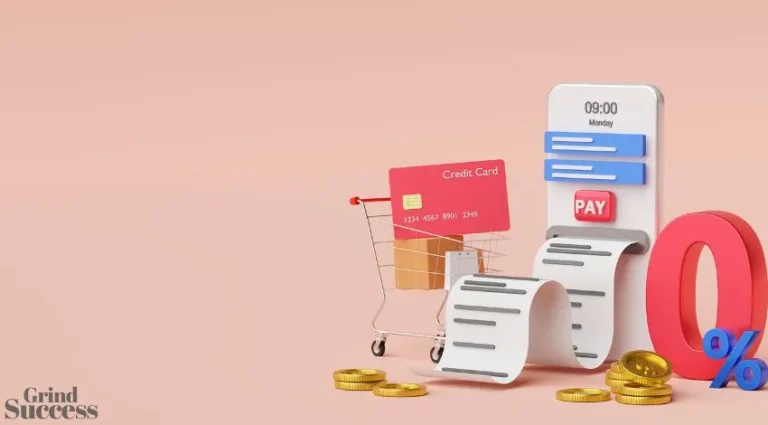6 Personal Finance Tips That Everyone Should Know

In today’s increasingly challenging economic climate, mastering personal finance has become more crucial than ever. Adopting effective personal finance practices can greatly increase your chances of achieving your monetary goals and thriving financially.
The internet is flooded with a myriad of financial experts and their advice. But this abundance of information can be overwhelming, even if you already have some knowledge of managing finances.
Fortunately, you’ve stumbled across the ideal guide for you! Whether you’re a beginner starting your financial journey or looking to enhance your money management skills, this guide presents essential personal finance tips that everyone should know.
So, without any further ado, let’s start!
1. Have a Retirement Plan
Regardless of how much you make or your current position, moving forth with the endgame in mind is essential. While your income stops after retirement, your bills and expenses will keep up.
There are many ways to save for retirement, but a workplace 401(k) is a great option. 401(k)s offer tax benefits and many employers offer matching contributions, which can further boost your savings.
If your employer does not offer a 401(k), you can open an individual retirement account (IRA). IRAs also offer tax benefits, and there are two main types of IRAs: traditional IRAs and Roth IRAs.
Traditional IRAs offer tax deductions on your contributions, while Roth IRAs offer tax-free growth and withdrawals. The best type of IRA for you will depend on your circumstances.
It is also a good idea to work with a Financial Advisor to create a retirement plan tailored to your specific needs. With their extensive knowledge and expertise, financial advisors can help you choose the right investments for your portfolio.
2. Avoid Credit Cards
While credit cards are a great way of developing a good credit score, it’s generally a “loan” that accumulates interest. Even if you can pay off the entire balance every month, the accumulated interest is an additional burden on your financial situation.
Using a credit card can also make it easier to overspend. When you use a credit card, you are not physically handing over cash, making it seem like the money is not real. This can lead to spending more than you would if you were using cash.
So, either avoid credit cards or use your credit card for purchases that you can afford to pay off in full each month. It also means you would be more mindful about tracking your spending and sticking to a budget.
3. Budgeting
Far more than often, people complain about how budgeting isn’t helping them save money. Sticking to the “50-30-20” rule can help you significantly in mastering personal finance.
Apart from the “50-30-20” rule, budgeting also has two elemental rules:
To further make budgeting effective, start tracking your expenses. Even small expenses like buying your daily morning coffee can take a toll on your finances. You can save more money or invest elsewhere by tracking your expenses and lowering your monthly expenses to the minimum.
4. Emergency Funds
With emergencies popping up at any time, life can become very unpredictable. If something unfortunate happens, you must have emergency funds to look after yourself.
While making an emergency fund will make you resort to a tighter budget, having one when needed will feel like an absolute relief.
5. Debts
Although it’s best to avoid debts, they are almost inevitable. For instance, if you’re going to attend university, but you don’t want to burden your guardians with the tuition fee, you will need to apply for a student loan. Similarly, buying a house is not a cheap venture; you may need to explore options like a mortgage.
Sometimes in life, expecting and accepting some debt is normal. However, the key is not letting it get out of control and paying it off as soon as possible.
When taking a debt, determine how you plan to repay it. According to financial experts, the two most effective techniques for paying off debt are:
#. The Avalanche
By adhering to the avalanche technique, you focus on paying off the largest debts first. While paying the largest debts first can be difficult, it will reduce your major liabilities, allowing you to save and invest more effectively.
#. Snowball
As the name suggests, the snowball technique is about clearing the smallest debts first. This practice aligns more with your budget and lets you keep some money in your hand.
Paying off small debts also suggests little progress, which can be motivating in paying off the remaining debts.
Settling your debts will allow you to utilize your earnings effectively and have an extended limit. Once your debt settles, it will feel like a burden is off your shoulders. However, try your best to avoid debts as much as possible.
6. Automate
If you have debts and bills, setting automatic transfers is a fantastic option to enjoy a stress-free life. By making automatic transfers, your essential expenses are taken care of automatically. It also helps you resist the temptation of spending the money for those expenses elsewhere.
The ideal practice is to set your bills and debts to be paid a day after payday. Not only are your bills and debts taken care of, but it will also give you an idea of how much money you have left to spend for the rest of the month.
The Final Words
Financial woes hit you hard. With economic conditions toughening daily, exercising a sound plan to stay on top of your finances has become essential.
By embracing these personal finance practices and staying committed to financial discipline, we can take control of our finances and work towards a more stable and prosperous future. Remember, the key is to stay proactive, seek continuous learning, and make informed choices based on your unique financial circumstances.






